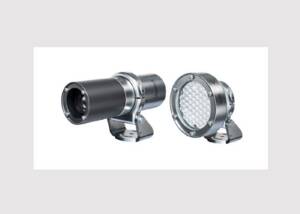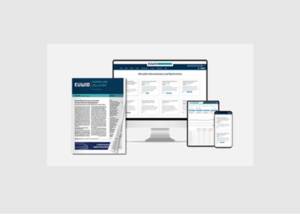FEPE: Advertising must not become the enemy
News General news
Envelope industry resists calls to introduce opt-in regulations in Germany

The companies united in the Federation of the European Envelope Industry (FEPE) see the freedom of advertising, which is part of the free market system, increasingly under threat. The action group "Letzte Werbung" (Last Advertising) and Deutsche Umwelthilfe (DUH), for example, have recently once again publicly called for the opt-out rule, which has proven its worth in Germany, to be replaced by a strict opt-in rule. This would mean that unaddressed advertising may now only be delivered if the mailbox bears a sticker reading "Advertising - yes please". FEPE estimates that the system change could cost thousands of jobs in the printing and weaving industry.
In FEPE's opinion, the German Environmental Aid Association (DUH) , the "Letzte Werbung" action group and also some of the political parties are fundamentally critical or even hostile to the freedom of advertising that is part of the free-market system. Advertising is increasingly becoming an enemy image, because advertising "seduces" consumers into buying products that are actually undesirable, such as meat, sweets or SUVs, and should be restricted as quickly as possible in the view of advertising skeptics. To achieve this goal, reducing print advertising seems to offer the ideal starting point.
Advertising is a core element of the market economy
Advertising, however, is a core element of our market economy system. It primarily serves to provide information about products as well as services and creates price transparency for consumers. In addition, parties and institutions also advertise for members and donations. This is particularly evident these days, when even parties that advocate a consistent opt-in put unaddressed election advertising in mailboxes.
Advertising therefore serves an important purpose in our economic system and therefore deserves recognition and by no means a negative attitude.
In addition, every consumer is already free to ban unwanted advertising from his or her mailbox by affixing an appropriate sticker. Around 30% of consumers make use of this right. But that is not enough for the initiators of the opt-in campaign. From their particular point of view, consumers are simply not doing what they should be doing.
DUH calls for opt-in regulation and 20 cent environmental levy on brochures
DUH and the "Letzte Werbung" action group are therefore calling for the immediate introduction of an opt-in regulation in Germany, justified by alleged savings of 535,000 tons of carbon dioxide. In addition, an environmental levy of at least 20 cents is to be charged on every printed advertising brochure distributed as direct mail to letterboxes.
But that's not all - postal service providers are also to be urged to reconsider the delivery of unaddressed advertising. In particular "Einkauf Aktuell" of Deutsche Post is in the special focus of the advertising skeptics.
Opt-in endangers thousands of jobs in the printing industry
Quite apart from the extremely dubious DUH calculation method of CO2 savings, the digital solutions mentioned as an alternative devour enormous amounts of electrical energy. Entire server farms have to be maintained for this purpose, which of course cannot be operated CO2-free. But in reality, the initiators of the opt-in are concerned with something completely different. As with a number of other issues, supposedly progressive forces are seeking to re-educate the population. Consumers are to be forced to change their behavior and now also to ban advertising from their mailboxes altogether, if possible. This is also reflected in the election programs of some parties, either in this way or in a similar way.
The German Printing and Media Industries Federation (bvdm) reported on this in detail just last week.
However, the advertising critics are carelessly overlooking the fact that in 2021, around 500,000 people will be working in the advertising industry, more than 100,000 of them in the printing industry and its associated sectors. Many of them could lose their jobs as a result of careless decisions.
In the envelope industry alone, around 2 billion advertising envelopes are up for grabs as a result of a consistent opt-in.
FEPE, in solidarity with other associations, will defend itself with all means against a nonsensical opt-in system change. "Under no circumstances will we allow the free-market element of "advertising" to be demonized in Germany. Advertising must not become an enemy image," said a FEPE spokesperson.










